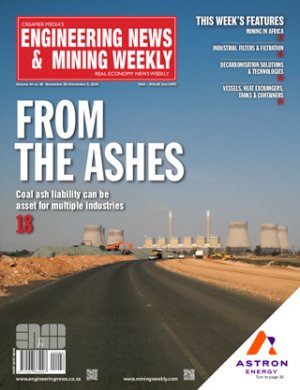JOHANNESBURG (miningweekly.com) – The actions of unscrupulous lenders and the effect this was having on vulnerable miners were discussed by representatives of gold mining majors AngloGold Ashanti, Gold Fields, Harmony Gold and Sibanye Gold at a This is Gold conference, on Thursday.
Owing of their stable employment, mining employees were being targeted by illegitimate credit providers, who provided easy access to loans. This, in turn, led to miners tying themselves up in more debt than they could cope with, as they often did not understand the consequences.
A recent study by the University of Pretoria revealed that 12.9% of the mining industry’s employees had emolument attachment orders, or garnishee orders, against their names and were severely indebted.
“Not only does indebtedness have a significant impact on employees’ ability to thrive and fund their future, but it has a deleterious impact on mineworkers’ wellbeing at work and at home,” spokesperson for the gold producers Charmane Russell said.
High levels of debt had also been identified as an underlying cause of industrial action, as workers sought higher increases to enable them to better service those debts, she added.
However, management consultancy The Performance Network Group CEO James Denton said the issue was not necessarily how much employees were getting paid, but rather, how much they were spending.
It was for these reasons that a task team, comprising representatives from the gold majors and unions, had been established last year to work towards teaching employees in the mining sector how to better manage their finances.
“By teaching employees how to manage their finances, how to budget and spend responsibly, the industry hopes to change the behaviour of employees and help them avoid debt going forward,” said Russell.
Edited by: Chanel de Bruyn
Creamer Media Senior Deputy Editor Online
EMAIL THIS ARTICLE SAVE THIS ARTICLE
To subscribe email subscriptions@creamermedia.co.za or click here
To advertise email advertising@creamermedia.co.za or click here













